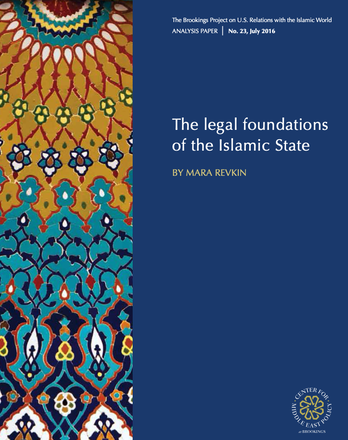REBEL GOVERNANCE
|
What Explains Taxation by Resource-Rich Rebels? Evidence from the Islamic State in Syria
Greed-based theories of civil war predict that rebel groups will only engage in taxation and other state-building activities in areas where they lack exploitable resources. However, this prediction is contradicted by the Islamic State’s pattern of taxation across time and space. A new data set mapping seven types of revenue-extracting policies imposed by the Islamic State, a jihadist rebel group, in the 19 Syrian districts that it governed between 2013 and 2017 indicates that these policies were just as prevalent in resource-rich as in resource-poor districts. I propose a new theory that better explains this pattern—a rebel group’s pattern of taxation is codetermined by (1) ideology and (2) the costs of warfare—and establish the plausibility of this theory through a case study of al-Mayadin, the most oil-rich district governed by the Islamic State and therefore an ideal site in which to investigate the puzzle of taxation by resource-rich rebels.
Perspectives on the Rebel Social Contract:
Exit, Voice, and Loyalty in the Islamic State (with Ariel Ahram)
This article considers the concept of the rebel social contract by examining the case of the Islamic State (IS) in Iraq and Syria. The concept of the social contract is a cornerstone of political theory and is increasingly invoked in discussions of civil war and authoritarian regimes, when prospective rulers offer political protections and social benefits in return for the allegiance of citizens. The social contract is often assumed to exist, but is rarely evaluated empirically. It remains difficult to distinguish between political stability derived from consent and stability derived from coercion and domination given their observational equivalence. Civil wars, in which rebel groups seek to supplant the state, provide opportunities to observe the construction and negotiation of new social contracts. The article uses Hirschman’s exit/voice/loyalty typology to develop a qualitative empirical method for evaluating evidence of the rebels’ “offer” of a social contract to civilians and their acceptance or rejection of that offer. We demonstrate this method by applying it to the case of IS using evidence including official IS documents, social media posts from within IS-controlled territory, and interviews with individuals who have personally experienced IS governance. We conclude that while IS leadership wanted to gain voluntary assent, most of the civilian response to IS rule suggested domination and authoritarian forms of social-contract building. This finding is illustrative of the analytical and methodological challenges involved in studying the social contract in rebel governance and the importance of considering domination, not just reciprocity, as the foundation for political order.
|
Competitive Governance and Displacement Decisions Under Rebel Rule: Evidence from the Islamic State in Iraq
The Journal of Conflict Resolution, 65, no. 1 (2021): 46-80
What are the conditions under which civilians living in territory captured by a rebel group will prefer its system of governance to that of the incumbent state? Given the opportunity to leave rebel-held territory, who stays and why? Through an original survey of 1,458 residents of Mosul, an Iraqi city governed by the Islamic State for more than three years and 61 semi-structured interviews, I conduct a multi-method descriptive comparison of the characteristics of “stayers” against “leavers.” I test and find some quantitative and qualitative support for a theory of competitive governance: Civilians who perceived improvements in the quality of governance under IS rule—in comparison with the Iraqi state—were more likely to stay than those who perceived no change or a deterioration. This finding suggests that weak rule of law and bad governance in Iraq may have contributed to civilian cooperation with IS.
The Legal Foundations of the Islamic State
Media coverage of the Islamic State frequently refers to the group’s violent and seemingly archaic justice system without considering the institutional structures that enable this violence, or the broader function that it serves in the group’s ambitious state-building project. Legal institutions make it easier for the group to capture and retain territory by legitimizing its claim to sovereignty, justifying the expropriation of the property and land of enemies, and building goodwill with civilians by ensuring accountability. The Islamic State’s legal system purports to strictly apply the divinely revealed body of Islamic law known as Sharia, which it regards as the only legitimate basis for governance. Although its legal system is frequently characterized as medieval, it has instrumentally supplemented the original text of the Quran with the modern rules and regulations that are needed to govern a 21st century state and punish modern day offenses—for example, traffic violations. It has the same three features that are present in any modern legal system: police, courts, and prisons. In a region that has long been plagued by corruption, the Islamic State has attempted to ingratiate itself with civilians by claiming that its legal system is comparatively more legitimate and effective than the available alternatives. However, two emerging vulnerabilities—the system’s susceptibility to corruption and propensity for extra-legal violence—are increasingly undermining the Islamic State’s ability to obtain the trust and cooperation of civilians. Counterinsurgency efforts should be designed to undermine the legitimacy of its institutions. Long-term solutions in the region must involve a fundamental reorganization of political and legal institutions in ways that promote legitimacy and rule of law.
| ||||||
